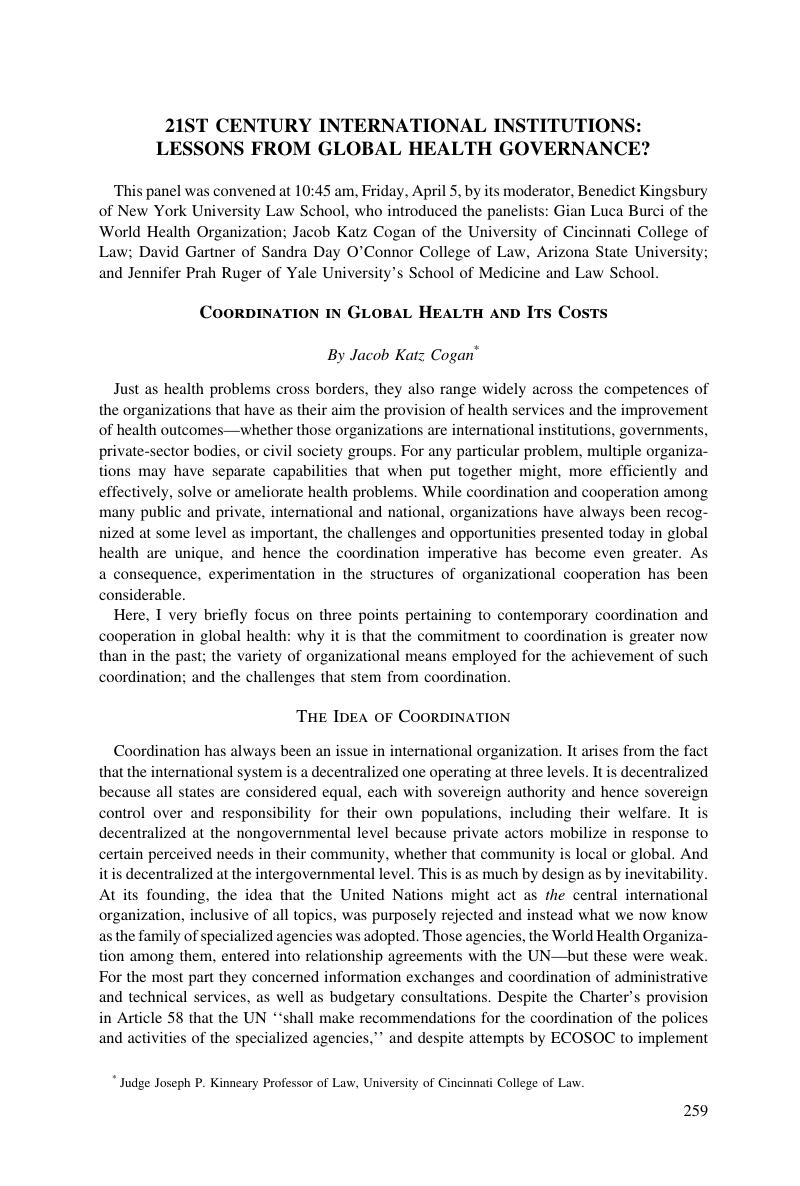No CrossRef data available.
Article contents
Coordination in Global Health and Its Costs
Published online by Cambridge University Press: 20 January 2017
Abstract

- Type
- 21st Century International Institutions: Lessons from Global Health Governance?
- Information
- Copyright
- Copyright © American Society of International Law 2014
References
1 Rosenberg, Mark L., Hayes, Elisabeth S., McIntyre, Margaret H. & Neill, Nancy, Real Collaboration: What It Takes for Global Health to Succeed 23 (2010)Google Scholar.
2 The WHO’s 1946 constitution specified that the organization’s functions include “to act as the directing and coordinating authority on international health work.” WHO Constitution art. 2(a); see also id. art. 2(b).
3 Inter-Agency Standing Committee, IASC Guidance Note on Using the Cluster Approach to Strengthen Humanitarian Response, Nov. 24, 2006.




